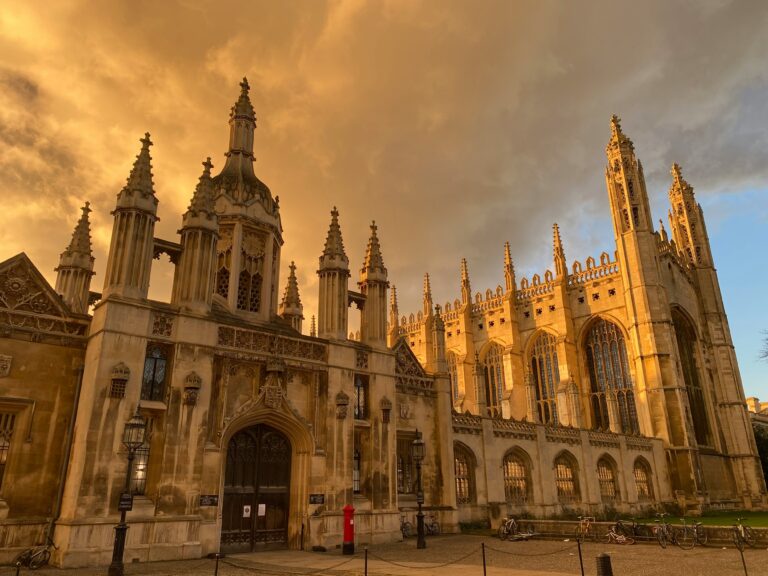1. Academic Focus vs. Holistic Review
Oxbridge applications centre almost entirely on a student’s academic potential within a specific subject. Strong predicted A-level grades (typically A*AA), high-achieving GCSEs, and performance in subject-specific tests are expected. The emphasis is on demonstrating depth, analytical thinking, and subject mastery.
In contrast, Ivy League universities in the US adopt a holistic approach. Academic records are still crucial, but admissions teams also look at extracurricular involvement, leadership, initiative, and personal growth. Grades are reviewed within the context of the applicant’s school and curriculum, as evidenced through transcripts*. The aim is to understand how a student challenged themselves relative to what was available.
The Oxbridge system values depth: the Ivy League values breadth – but both require excellence.
2. Course Selection and Flexibility
One of the starkest differences between the two systems lies in academic structure. Oxbridge applicants must commit to a specific course from the outset and are expected to demonstrate strong alignment with that subject. Personal statements, test scores, and interviews all focus on this single area of study.
In the Ivy League, applicants typically apply to the university as a whole. Students can explore a range of subjects before declaring a major, often at the end of their second year. This flexibility allows for academic discovery and the ability to pivot interests once enrolled.
- Apply to the university overall, not a specific course
- Can explore multiple subjects before declaring a major (usually in second year)
3. Application Timeline & Components
The application process differs not just in structure but also in rhythm. Oxbridge operates on a strict timeline: applications must be submitted via UCAS by 15 October, and students may only apply to either Oxford or Cambridge, not both. Applications often include subject-specific tests and the submission of written work, depending on the course.
The Ivy League system allows a bit more flexibility. Most universities set deadlines around 1 January, with options for Early Action or Early Decision typically in November. Students apply through the Common App (or other institutional platforms), and applications include a main personal essay along with university-specific supplements. Recommendations from teachers and counsellors also form a critical part of the application, providing insight into the student’s character and contributions beyond grades.

4. Interviews & Tests
Oxbridge interviews are rigorous and academic in nature. They are designed to mirror the university’s teaching style, often one-on-one or small-group tutorials, and test how a student thinks, not just what they know. These interviews probe reasoning, analytical thinking, and subject knowledge. In most subjects, applicants are also required to take a subject-specific admissions test such as the MAT, BMAT or LNAT.
Ivy League interviews, when offered, are usually conducted by alumni and are more conversational. These are designed to give insight into a student’s personality, interests, and motivations. They are not academic tests, but a chance to show maturity, curiosity, and interpersonal skills.
Standardised tests (SAT or ACT) are now optional at many Ivy League institutions, but strong scores can still strengthen an application – particularly for international students, as they provide context for academic performance across global systems. Applicants should check requirements for each university, as expectations vary.
5. Tuition and Financial Aid
For UK-based students, Oxbridge tuition fees are capped at a set national rate, making them comparatively affordable. However, fees for international applicants vary significantly depending on the course. While scholarships and bursaries do exist, financial aid for non-UK applicants is generally limited and highly competitive.
By contrast, Ivy League institutions are renowned for their generous need-based financial aid. While this is most comprehensive for US citizens, many Ivy League universities also extend substantial support to international students. In some cases, families may find that studying at a top-tier US university is no more expensive, and occasionally cheaper, than attending as an international student in the UK.
6. How to Stand Out
In a highly competitive field, standing out is about aligning your strengths with the ethos of the institution.
For Oxbridge, success often depends on academic maturity and subject passion. Students should be able to talk in depth about their chosen subject and show they’ve engaged beyond the curriculum. This might include super-curricular activities such as independent reading, competitions, lectures, or work experience. The most compelling candidates demonstrate an ability to think critically and logically under pressure.
For Ivy League universities, it’s less about subject depth and more about personal story. Successful applicants often demonstrate a clear sense of purpose and identity. Rather than joining every club, they commit deeply to a few activities and take initiative – whether that’s leading a project, launching a social campaign, or building something from scratch. Thoughtful, authentic essays help tie this all together and give admissions officers a sense of the person behind the grades.
Standing out in both systems is about authentic alignment: showing who you are, what you value, and how you’d thrive at that institution.
Explore Our US Admissions Support
If you or your child are considering applying to US universities, Enjoy Education offers bespoke support tailored to your academic and personal ambitions.
Our US Admissions service is led by expert consultants. We help students apply not only to the Ivies, but also to a wide and diverse range of excellent American universities.
Summary Table: Oxbridge vs. Ivy League Applications
| Category | Oxbridge | Ivy League |
| Academic Focus | Depth in one subject; subject-specific testing | Holistic review; academics, extracurriculars, essays, etc. |
| Grades | AAA predicted A-levels; strong GCSEs | Strong academic record reviewed in school context |
| Course Flexibility | Must choose course at application stage | Major often chosen in second year |
| Application Process | UCAS; deadline 15 Oct; choose Oxford or Cambridge | Common App; multiple essays; deadlines vary |
| Interviews | Academic, subject-focused with tutors | Conversational, alumni-led; more personal |
| Standardised Tests | Subject-specific tests (MAT, BMAT, etc.) | SAT/ACT optional but can strengthen application |
| Tuition & Financial Aid | Capped UK fees; limited aid for international students | Generous need-based aid; international support varies |
| What Stands Out | Intellectual rigour, subject depth | Personal narrative, leadership, well-rounded impact |
*In the US system, a ‘transcript’ refers to a student’s official academic record, listing courses taken, grades received, and sometimes the difficulty level of each class. This term may be unfamiliar to UK students, where such documentation is usually provided through exam certificates, predicted grades, and school reports.
Information in this blog is correct at the time of publishing, and not reflective of a changing political landscape on student visas/international applications.
Get the support you need on applications now!
